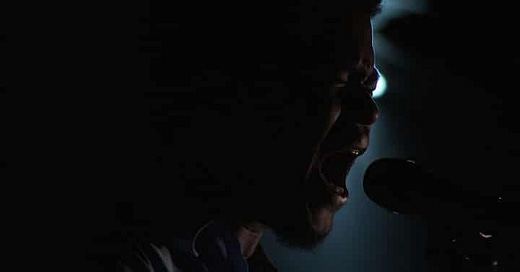‘Death Metal Angola’ Review: A Quiet Film on a Loud Subject

Following its independence from colonial Portugal in 1975, Angola erupted in a civil war that lasted decades, destroying the country’s infrastructure and defining a generation haunted by memories of violence and scarcity. It is against the backdrop of this memory of war that the Angolan death metal scene arose as both a community-forming distraction fro…
Keep reading with a 7-day free trial
Subscribe to Nonfics to keep reading this post and get 7 days of free access to the full post archives.



